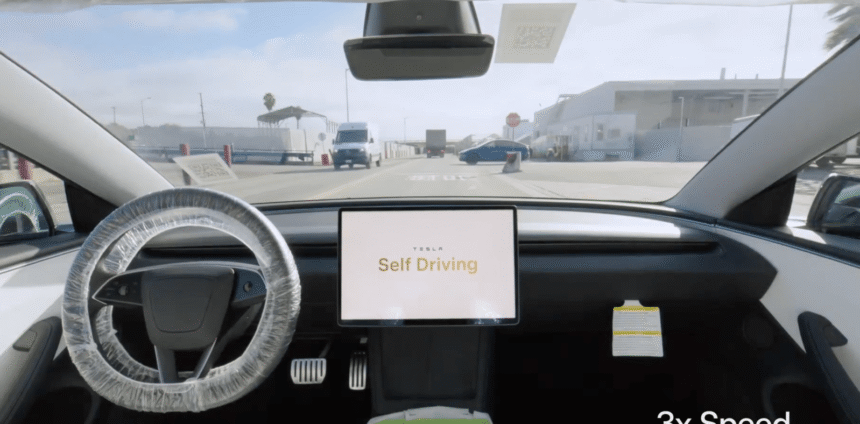Tesla CEO Elon Musk recently announced that the company has successfully delivered its first car fully autonomously from the factory to a customer’s home “across town.” This achievement marks a significant milestone in the development of self-driving technology and has sparked discussions about the future of autonomous vehicles.
According to Musk, the delivery was completed without any human intervention, with no people in the car or remote operators controlling the vehicle at any point during the journey. This feat, if true, would set Tesla apart from other companies working on autonomous driving technology.
While Tesla’s previous Robotaxi service required a Tesla employee to be present in the passenger seat at all times, ready to take control if necessary, this fully autonomous delivery represents a step forward in the company’s autonomous driving capabilities. However, it is worth noting that other companies, such as Waymo, have also conducted fully autonomous driving tests without any human intervention.
Waymo, a subsidiary of Alphabet Inc., has been offering autonomous rides to paying passengers in select cities, including Phoenix, San Francisco, and Los Angeles. The company’s operations include highway driving, although it is currently limited to employees using Waymo’s internal app in certain markets.
Tesla’s milestone achievement comes after the company has been autonomously moving vehicles from the end of the production line to delivery lots at its factories in the United States. This latest development has raised questions about the reliability and safety of fully autonomous driving systems.
While Tesla has yet to release a video of the milestone delivery, the company’s track record with self-driving technology has been met with skepticism. Critics have pointed out that Tesla’s self-driving programs, including its Full Self-Driving (FSD) and Robotaxi initiatives, have faced challenges and safety concerns in the past.
Despite the hype surrounding Tesla’s fully autonomous delivery, some experts remain cautious about the implications of this achievement. The lack of transparency and data from Tesla regarding the safety and performance of its autonomous driving systems raises concerns about the scalability and reliability of the technology.
In conclusion, Tesla’s successful delivery of a car fully autonomously represents a significant milestone in the development of self-driving technology. However, questions remain about the company’s ability to consistently and safely operate autonomous vehicles without human intervention. As the race for autonomous driving technology continues, it will be crucial for companies like Tesla to prioritize safety and transparency in their efforts to bring self-driving cars to the mass market.







